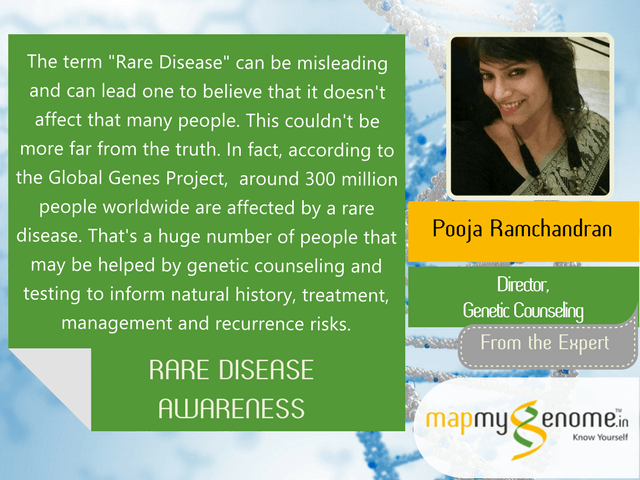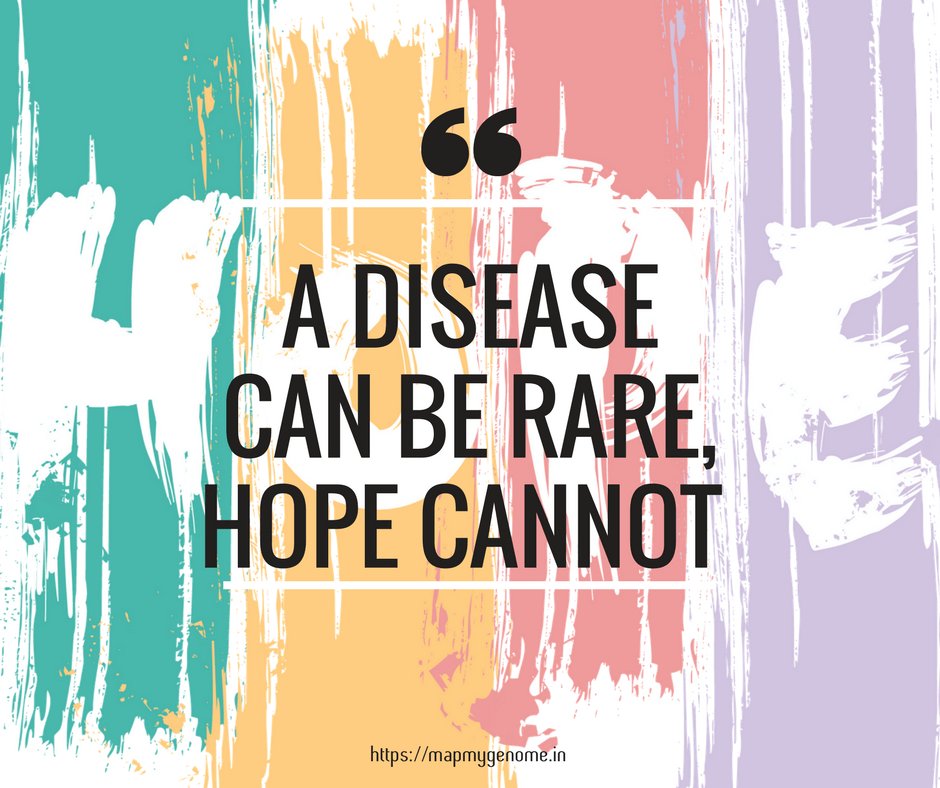Rare Diseases: We are In This Together
Feb 28, 2018
5502 Views
Time and again the medical community is reminded that we have to continue learning, accept the limitations of science and most of all, listen to our patients. If you ask a patient or family with rare disease, they will agree.
Rare diseases are often chronic and life-threatening. While the onset of many rare diseases is in childhood or at birth, some diseases may present in adulthood. Rare diseases can range from immunological disorders, benign neoplasms, cancers, cardiac and vascular conditions, and endocrine disorders, to conditions of musculoskeletal, skin, or soft tissues. The US National Organization for Rare Disorders published a list that contains over 1200 diseases. (https://rarediseases.org/for-patients-and-families/information-resources/rare-disease-information/)
What are rare diseases?
Rare diseases are conditions that affect a small number of people in the population compared against the general population. Factors that help in defining rare disease are total number of people having the disease, its prevalence in the population of a certain geographic region, and lack of health resources to diagnose or treat the disease.
The World Health Organization recommends that a rare disease should be defined as one in less than 6.5-10 per 10,000 people. Every country has a different definition for rare disease, defined in the context of its own population and resources. For example, in the United States, rare disease is defined as a condition that affects less than 200,000 persons. In UK, rare disease may affect up to one in 30,000 people. Currently, in India, there is no definition or policy on rare diseases.

What causes rare diseases?
Recent advances in molecular and epidemiology research, along with advances in technology, have increased our understanding of rare diseases. Identifying the cause of a rare disease does not always lead to cure; however, it can play a critical role in understanding the disease progression and facilitating appropriate treatment and management. In many cases, the underlying causes for rare diseases remain unknown.
Genetic causes of rare diseases
Nearly all genetic diseases are rare diseases but not all rare diseases are genetic. About 80% of rare diseases may have a genetic component. Many rare diseases are caused due to a change in a single gene; some may be caused due to contribution from multiple genes, or chromosomal defects. Some diseases are suspected to be heritable but genetic causes are not known.
Non-genetic causes of rare diseases
Rare diseases may also be caused due to infectious agents. Some infections are rare worldwide (for example Balamuthia mandrillaris) while others are common in some countries (for example, Tuberculosis, which is uncommon in many western countries, but common in India). Exposure to natural or manufactured toxic components can increase the risk of developing rare diseases or conditions; for example, arsenic or mercury poisoning. Rare diseases could also be caused by nutritional deficiencies or persistent toxic effect of treatment for other diseases, such as radiation exposure.
The Diagnostic Odyssey of Rare Diseases
Many families and patients face frustratingly long periods of time between the initial onset of symptoms to a definite diagnosis. Oftentimes, sadly, they may have had multiple tests and visits to specialists, and given multiple diagnoses resulting in inconsistent care. A European study surveyed eight rare diseases reported that about 40% individuals of 6,000 responses initially received a wrong diagnosis and 25% people reported waiting anytime between 5-30 years for a correct diagnosis (Faurisson, 2004).
In the past, accurate diagnosis for several rare diseases was limited by cumbersome or expensive testing, limited access to latest information in medicine, and lack of technology or medical expertise to facilitate diagnosis. With technological advances, specialization of physicians along with access to latest medical information, we see improvement in wait times and accuracy of diagnosis. Some continued challenges in the diagnosis of rare diseases include the lack of definitive lab test results, symptoms shared by other common diseases, and atypical presentation of a rare disease.
Treatments for Rare Diseases
There are many approaches to treating rare diseases. Treatments can be curative in some cases by correcting a unique structural feature (e.g., surgical correction of coarctation of the aorta) or organ transplantation. Disease-modifying therapies aim to prevent the progression of the disease or reduce the effect of the disease. Currently available options for treatment largely focus on alleviating symptoms and preventing complications.
Genetic testing can help in diagnosis of rare diseases
Genetic testing can play a crucial role in the diagnosis of many rare genetic conditions. Advancement in technology is drastically reducing the cost of genetic testing. Appropriate genetic testing is dependent on clinical evaluation of symptoms and recognizing red flags for conditions that may warrant genetic testing. Despite the fact that many rare diseases can now be confirmed by a genetic test, limited access to laboratories performing such genetic test can create barriers to receiving a definite diagnosis.

Impact of rare diseases on families
Rare diseases can impact all associated with it — the patient, family, friends, healthcare professionals, and the larger society. Families and individuals can have varied experiences with a rare disease and their responses to such crisis may also vary. Families with rare diseases may often face grief due to loss of infants or young children or some may grieve the loss of a healthy life. Grief and loss can affect parents, siblings, grandparents, and also other individuals associated with the family. Families may often feel isolated due to lack of information, resources, and loss of community.
Many families with rare diseases face financial crisis due to expensive tests and specialty visits in search of an accurate diagnosis. Medications for managing rare disease can be expensive and many may require long-term care. In addition, both individual and family may also be impacted by implicit care-giving demands that could, potentially, lead to loss of wages, inability to find work with flexible times, or other benefits.
Many families motivated by the physical, emotional, and financial impact of a rare disease reach out to other families with similar concerns. This snowball effect has led to the development of advocacy groups that work towards awareness, advancement of research, treatment, or financial support for families with rare diseases.
Genetic counseling can help
Genetic counselors can provide education and psycho-social support to patients and families with rare genetic disorders. Genetic counseling for families with rare diseases can help facilitating informed decision making with respect to genetic testing; coping with grief; adaptation and setting realistic expectations during times of uncertainty.
Genetic counselors are healthcare professionals with expertise in medical genetics and psychological counseling. If you or anyone you know have an undiagnosed disease and would like to discuss potential underlying genetic cause and would like to set up a genetic counseling appointment CALL US on 1800 102 4595 (toll-free) or 040-66986700 or WRITE TO US at info@mapmygenome.in.
Resources for families
http://www.orpha.net/consor/cgi-bin/Education_AboutRareDiseases.php?lng=EN
Selected References
- Faurisson F. EurordisCare2: Survey of Diagnostic Delays, 8 Diseases, Europe. 2004. [August 6 2010]. http://archive.eurordis.org/imprimer.php3?id_article=454.
- Institute of Medicine (US) Committee on Accelerating Rare Diseases Research and Orphan Product Development; Field MJ, Boat TF, editors. Rare Diseases and Orphan Products: Accelerating Research and Development. Washington (DC): National Academies Press (US); 2010. 2, Profile of Rare Diseases. Available from: https://www.ncbi.nlm.nih.gov/books/NBK56184/
- Lipinski SE, Lipinski MJ, Biesecker LG, Biesecker BB. 2006. Uncertainty and perceived personal control among parents of children with rare chromosome conditions: The role of genetic counseling. Am J Med Genet Part C Semin Med Genet 142C:232-240.
